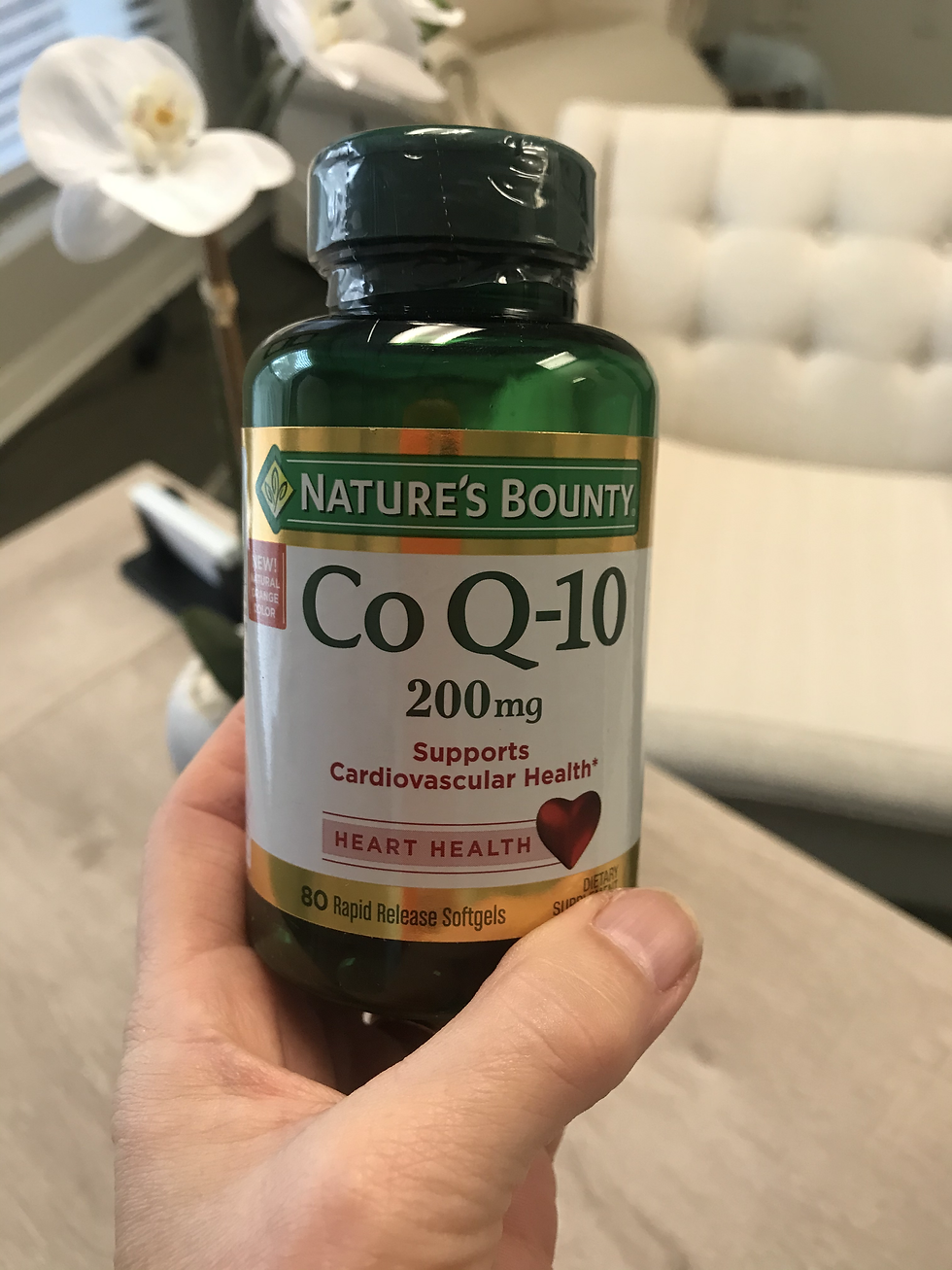Supplement Sunday - Green Teas
- Elicia Kennedy

- Oct 25, 2020
- 3 min read
Today, I wanted to talk about green tea. It has a range of possible health benefits!

What is it?
Green tea is a type of tea made from steaming the leaves and buds of Camellia sinensis (that was for you botanists out there). It originated in China but is now grown in many places. It contains catechins (polyphenols), especially epigallocatechin-3-gallate (EGCG). Catechins are natural antioxidants (reduce free-radicals) that that help prevent cell damage and provide other benefits. It is sold in many forms such as tea bags, loose tea, K-cups, bottle drinks, Matcha powders (finely ground powder of the tea leaves), and as supplements that just contain high concentrations of the EGCG. It does contain caffeine, about half the amount as a cup of coffee
What does it do?
The benefits are primarily from the EGCG. There are studies that show some modest benefit in the following:
Reduction of LDL cholesterol, which is considered your bad cholesterol
Reduced risk of cancer, primarily Breast, Prostate, and Colorectal - Green tea has powerful antioxidants that may protect against cancer.
Reduced growth of uterine fibroids in some studies
Some controlled studies show that green tea may cause mild reductions in blood sugar levels. It may also lower the risk of type 2 diabetes.
Most of the studies are on 3 cups or more a day.
What are the risk?
As in all supplements, do your homework and find a good brand. The amount of EGCG can vary widely in various brands. There is some heavy metal contamination found in some brands (especially lead).
Liver toxicity — this occurs more in the supplements or pill forms, as people are getting higher doses of the EGCG and particularly if taking on empty stomach
Interaction with certain medications — the Matcha does contain some Vitamin K (in the leaves of the tea), which can interact with certain blood thinning medications eg. Warfarin
Contamination with heavy metals, particularly lead
Excessive tea consumption can make bones and teeth brittle from too much fluoride
Excessive amounts in pregnancy are not good for the baby
Super hot tea and association with gastric cancer
I know I keep linking Consumerlab, but these little videos are so informative for those of you that like to go deep and learn more. They are short and great for referencing now or when you want to go back and review. When different green teas are tested, they can contain anywhere from 25-75 mg of EGCG. This is a large range that makes a big difference, so look at the labels. Matcha powder can contain about 75-120 mg in a teaspoon of the powder. Cost is very variable in the different brands as well. Do your homework!

Just a few brands:
(Again, you can buy anywhere; I just put the link so you can see the picture):
Regular Tea Bags
Lipton Pure Green Tea - 79 mg EGCG
Numi® Organic Tea Gunpowder Green - 52.6 mg EGCG
Decaffeinated Tea
Trader Joe's Specialty Teas Decaffeinated Green Tea - 70.3 mg EGCG
Bigelow® Green Tea - Decaffeinated (1 tea bag) - 37 mg EGCG
K-cups (much more expensive per cup)
Celestial Seasonings® Green Tea (1 K-Cup)- 32.4 mg EGCG
Matcha
Organic Kenko Tea Matcha - 89.1 mg EGCG
Superfoods by MRM® Raw Matcha Green Tea Powder - 183.6 mg EGCG
Green Tea Beverages
Harney & Son Organic Green - 59.3 mg per 8 oz
Honest Tea® Organic Honey Green Tea - 45 mg EGCG per 8 oz
Bottom line-
I do try and drink tea in the afternoon, especially as it is getting colder. I have started drinking green tea some, and I tend to drink decaffeinated, because I am pretty sensitive to caffeine (I can get so awake that I am cleaning at midnight, and my poor husband thinks I am crazy). It is a good substitute for that afternoon coffee or drink you are used to having. This is a great way to incorporate something healthy into your day.
I do prefer you drink it rather than taking pills — it negates a lot of the risk.
Remember no supplement is going to make you healthier especially if you are not eating well, resting, exercising, handling stress and nurturing a good support system. They are just one part of a healthy lifestyle.
All material gathered and researched through my amazing fellowship program, The Arizona Center for Integrative Medicine.
and





Comments